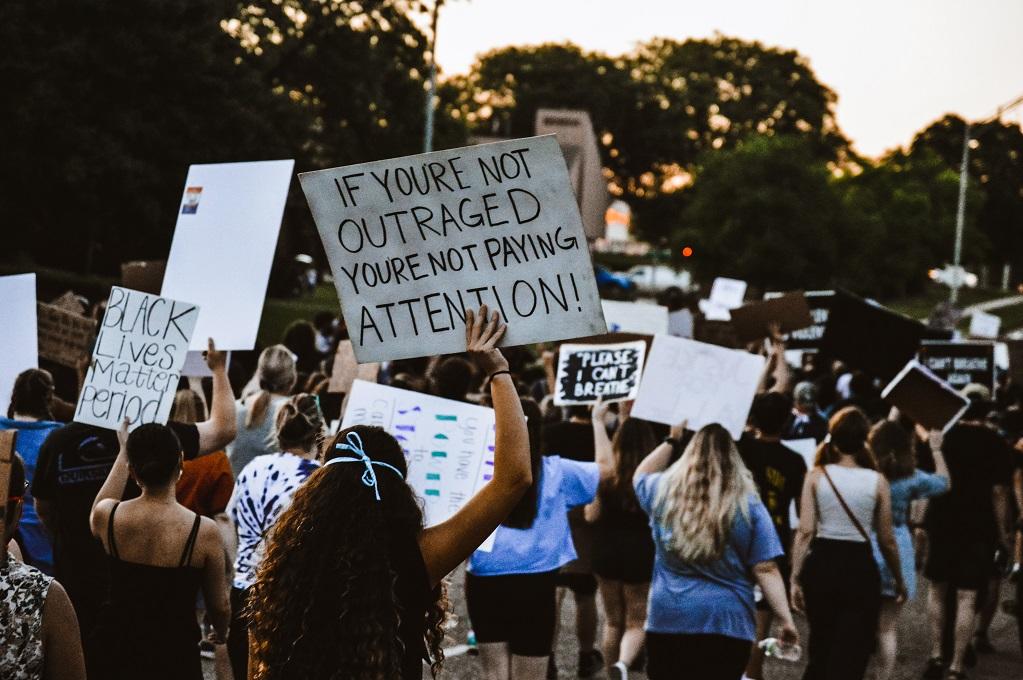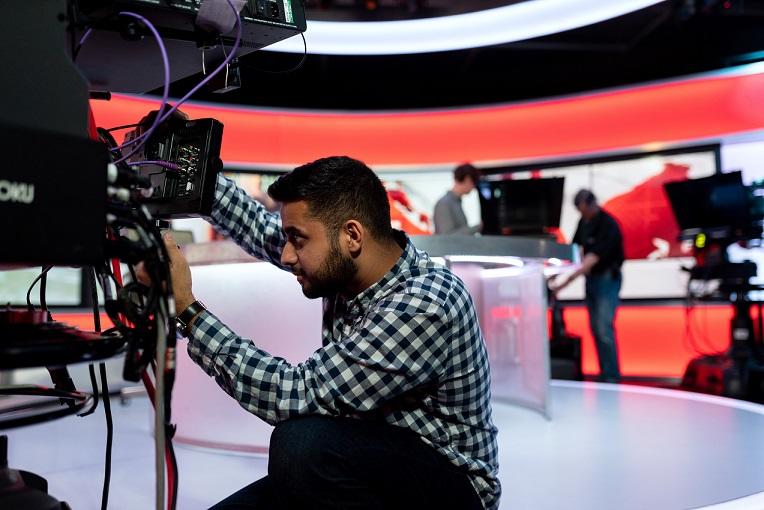Media plays an imperative part in how we perceive and experience our world. Thoughts about public figures and influencers, the country’s economy, the government and companies are all formed through the messages that we receive in the printed press, social media, on the news or on radio.
Media can have an immensely impactful influence on public opinion.
It was through the active participation of the press that political and positive social change in South Africa brought an end to Apartheid. But the media was also used as a tool to create negative propaganda in Rwanda to turn neighbours against each other during the still recent Rwandan civil war (1990 - 1994).
The media was also responsible, specifically through the application of social media, for influencing views and opinion in America during the last presidential battle. The social media algorithm shows people what they want to see based on their past searches and this caused the reinforcement of beliefs, leading to the mass polarisation of a nation.
Media has the power to influence, and the ownership, funding and regulation of the media becomes a frequent and important debate.
Will the privatisation of media be a responsible step in protecting people where the motive remains profit and sensationalism? Will government ownership be responsible if we consider the ongoing political agendas where personal gain and ambition sometimes takes president over the originally intended interest of the people?
This article will take a brief look at privatisation, what it means, the pros and cons and how it continues to cause ongoing debate in South Africa.
Want to give private lessons?
Join the Superprof community and share your knowledge with inquiring and motivated students.
The Origins of Privatisation
Privatisation and the contracting of services are not new concepts. The ancient Greeks contracted out some public services, and the Roman practice of contracting legions and defence forces from other countries is still a common practice across the globe today.
A few hundred years later the Han Dynasty (historical China) turned all their affairs around by mastering privatisation and contracting or selling every state and/or civic concern. These decisions were based on ideological goals without much background to consider the economic impact.
However, it wasn’t until the 1980s that privatisation really started taking off in the United Kingdom and United States. The rest of the world, excluding one or two exceptions, followed suit.
The theoretical principle was simple; handing over previously state-owned assets to private companies meant improved efficiency around its management.
Economics makes use of various theories to explain and understand how changes in government spending and influence will impact demand. Milton Friedman influenced both Ronald Reagan (US president) and Margaret Thatcher (UK's Prime Minister) to lessen government involvement in economic and social areas, while driving and agenda of a free world economy.
These leaders in turn influenced the World Bank and the International Monetary Fund (IMF) which led to the implementation of the ‘Chicago School’ Economic theory. This meant that any country that required IMF assistance were indirectly nudged towards implementing the same principles and policy as Chicago School Economics. Some South American countries were a part of this list and in doing so they made themselves more vulnerable to market fluctuations and volatility.
China has never really subscribed to IMF demands. They argued against the privatisation of state assets and stated that they wanted to place their focus on getting the economy back on its feet after its history of communist isolation. Today they seem to perform better at managing global economic storms, which benefits their economy.
It is thus clear that there’s no one size fits all when it comes to privatisation. Both extremes have their benefits and disadvantages which means a country should carefully consider how they approach it. Changes around a country and its global economic climate will influence the steps they take to improve international and local trade, protect in-market labour or inspire foreign investment.

Privatisation: The Pros and Cons
History provides great examples for us to learn how decisions around ownership influenced economics.
Rome was a powerful empire and had so much state assets and property that it became impossible to manage. Some historians believe that it was the bureaucratic costs of maintaining all that enterprise that lead to the downfall of the Roman empire. They did however, start to put ownership and responsibility in other people’s hands, freeing up state resources while allowing the stimulus of commercial activity. Unfortunately, this move might’ve been just too late, but certainly points out one of the greatest benefits of privatisation; efficiencies.
Greater efficiency leads to more competition, and more competition leads to the development of products, lowering production cost and the creation of services that consumer will choose above other competitors. When governments own these, they don’t have competitors and can thus get away with substandard products or bad services.
Generally privatisation also leads to less political influences and red tape. This can be beneficial as it means the country as a whole speaks up through how they choose to spend their money and it is not decided by a single elected party who drives decisions around their political agendas.
This doesn’t mean that putting everything in private hands is a more trustworthy choice. In fact it has been proven that private companies are more scrupulous in their dealings than government officials and there can thus be quite a lot of corruption if it’s not controlled by the correct legislation.
Efficiencies around the privatisation of public services also means greater savings for consumers on taxes and some believe it leads to greater job creation than if it was solely controlled by the government. It does however come at a cost, less transparency and control.
The stimulation of certain sectors might not happen on its own without government intervention and because profit remains the ongoing motive for companies, the private sector might exploit consumers to make money.
Privatisation generally makes it harder to execute strategically important and changing government objectives due to long locked in contracts with private insitutions. This makes it a more inflexible option than having the resources in-house to make the required adjustments.

Want to give private lessons?
Join the Superprof community and share your knowledge with inquiring and motivated students.
The Privatisation of Media
Who do you think should the owners of media be?
The world of media is driven by passion, innovation and creativity, and unfortunately government employees don’t have a successful track record in delivering these in their roles. So if we want to create engaging media it then makes complete sense that the privatisation of media is the way to go, right? Like most questions in economics, the answer is yes and no.
Privatisation in media will allow the continuous bombardment of hundreds of television stations, streaming services and offerings. It will be led by sensationalism and through ‘what sells’ and not necessarily what society needs for introspection, social development and greater mental health.
The picture changes when you start to view media from an angle where it’s a public service to entertain, educate and inform citizens. In this way it makes sense for government to have greater control and ownership over media. South Africa’s SABC unfortunately tells a terrible story of how a government-owned broadcaster were exploited by officials and eventually left in a state of disrepair with no money, bad quality programs and crumbling resources.
Some might also argue that public, or government owned enterprises allow coordination between broadcasters and media watchdogs to bring consumers informed and balanced reporting. Again, this argument depends on the governing party and their motives and it can be easily influenced to withhold valid, opposing alternative arguments.
We also know that money makes the world go round and the equation changes when greedy stakeholders come into play. How money flows in and out of the media industry will determine who calls the shots. Our article on money in media will give you a better background on this. You can also read the related article on how social media makes money as it might just change your mind on who should manage or own media in South Africa.
Become part of the social media economy; read this article on how to make money with social media.
Freedom of Speech in South Africa
Media ownership and freedom of speech go hand-in-hand.
Those who control the media can sensor and control the narrative which is fundamental when we consider public broadcasting.
During the Apartheid era, the government censored and prohibited the publishing of important stories and materials. It was only in 1994, with a new democracy in South Africa which also welcomed a new constitution, when every person gained freedom of speech. This paved the way for South African press to finally report independently on what was happening in the country and the world at large.
Fast forward to today, many other factors started to influence public opinion and media. Social media, the internet and digital platforms created an entirely new media category, resulting in many governing bodies and governments now struggling to monitor and prevent the spread of fake news.
The South African press lost many good writers and reporters due to the frustration they experienced around government interference. Influenced narratives and surveillance started creeping back into the media, making them feel that they cannot report stories in a truthful and honest way.
Many political parties will support the privatisation of media, keeping responsible freedom of speech intact, while others argue that government ownership is the responsible thing to do for the advancement of society.

The Debate Continues
Whether we privatise media or other government assets will remain a contentious issue.
After decades of privatisation we’re seeing how wealthy corporates continue to monopolise and dominate the market in the interest of profits, and at the cost of growing inequality. With less control and more assets in private hands, there will be less to distribute and share for the social welfare of all.
But governments are also struggling to cope. With rising tensions in democracies across the world they lost the trust of consumers and there’s more and more evidence, especially in South Africa, where the government has failed to deliver on its promises to the people.
In economics we never have a one size fits all approach and maybe the best option is to find a happy medium where we use a bit of both.
Do you think it's possible to find that perfect balance?
Will you bring new insights and views into to the discussion and help shape a new successful future for South African media?
Our economy and people might depend on it.
Want to give private lessons?
Join the Superprof community and share your knowledge with inquiring and motivated students.
Summarise with AI:





